The Temple of Heaven is commonly known as a 600-year-old royal altar, but it is also one of the best places in Beijing to spot birds and be close to nature.
As the novel coronavirus takes its toll on people in China, how about the wildlife residents?
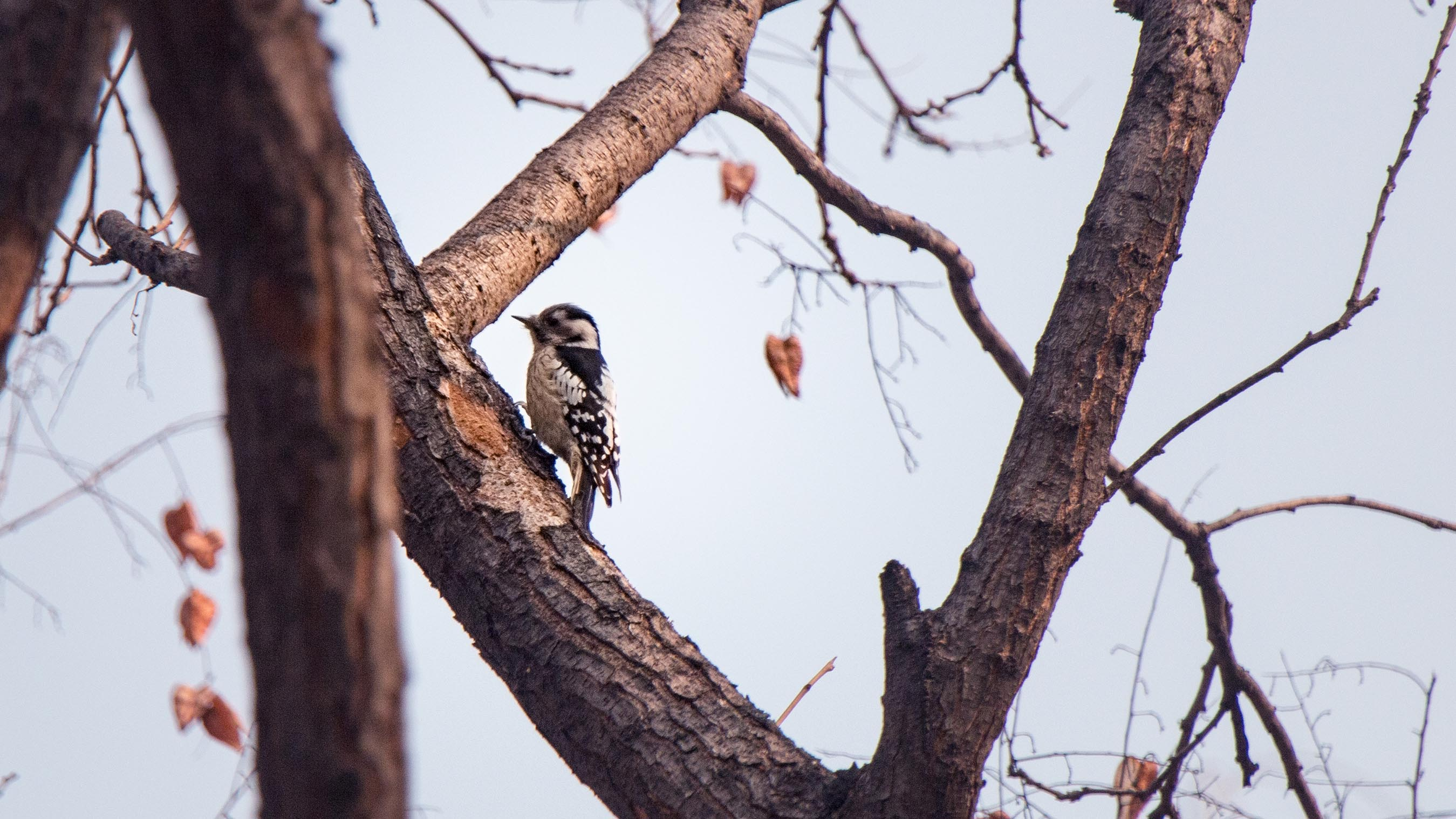
A grey-capped pygmy woodpecker, the smallest woodpecker in Beijing, rests on a tree in the Temple of Heaven on February 11. Xing Fangyu/CGTN
A grey-capped pygmy woodpecker, the smallest woodpecker in Beijing, rests on a tree in the Temple of Heaven on February 11. Xing Fangyu/CGTN
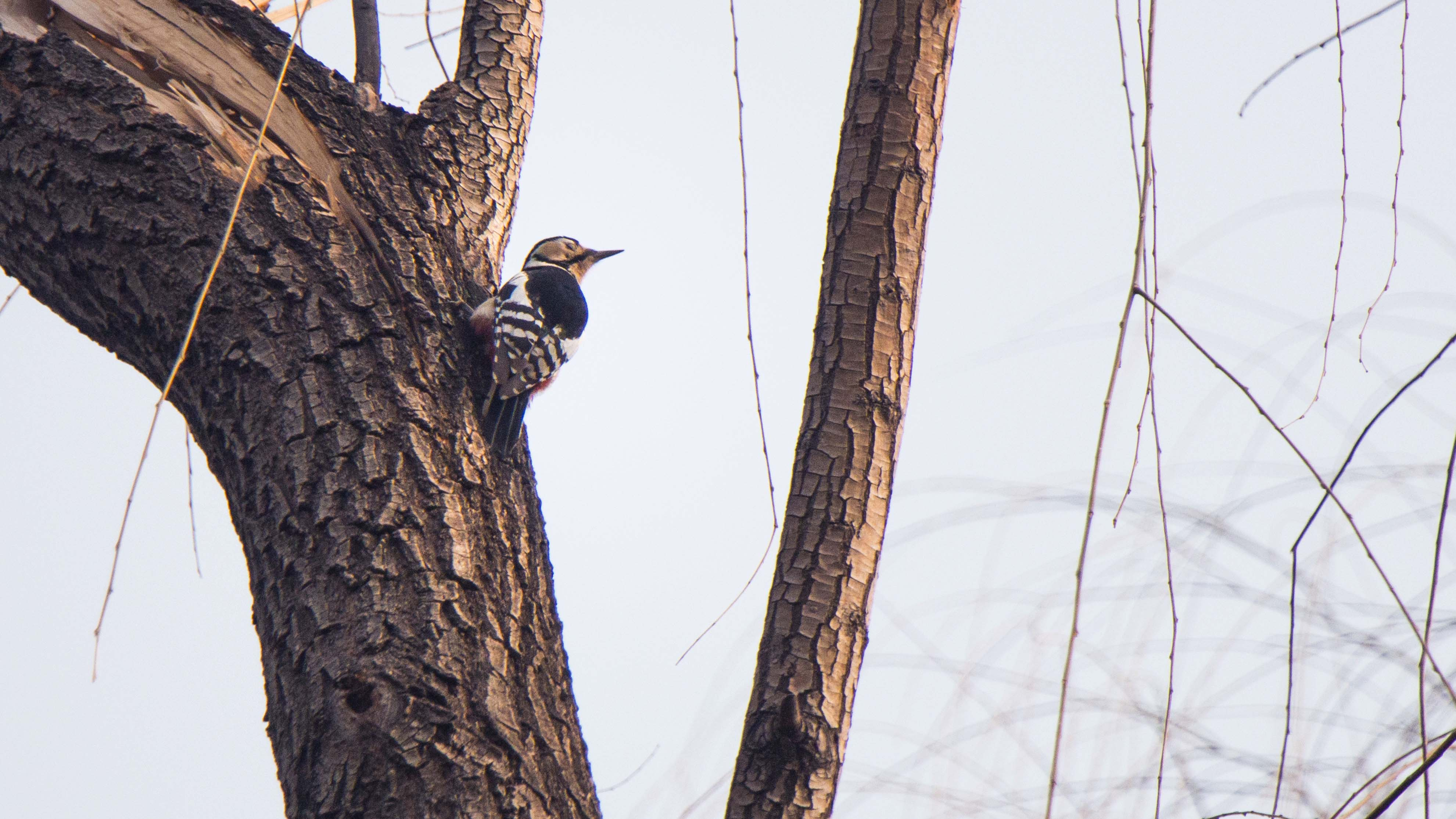
A great spotted woodpecker on the tree next to the grey-capped pygmy woodpecker, Temple of Heaven, February 11. Xing Fangyu/CGTN
A great spotted woodpecker on the tree next to the grey-capped pygmy woodpecker, Temple of Heaven, February 11. Xing Fangyu/CGTN
On February 11 when Beijing confirmed another 10 patients with the virus, many residents were still under a 14-day quarantine that kept them mostly indoors. As a result, the Temple of Heaven became a real haven for wildlife.
Squirrels could be seen running about freely, and the sounds of woodpeckers pecking on trees were never so clear.

The squirrels were able to roam freely and seemed less alert to human traffic, February 11. Xing Fangyu/CGTN
The squirrels were able to roam freely and seemed less alert to human traffic, February 11. Xing Fangyu/CGTN
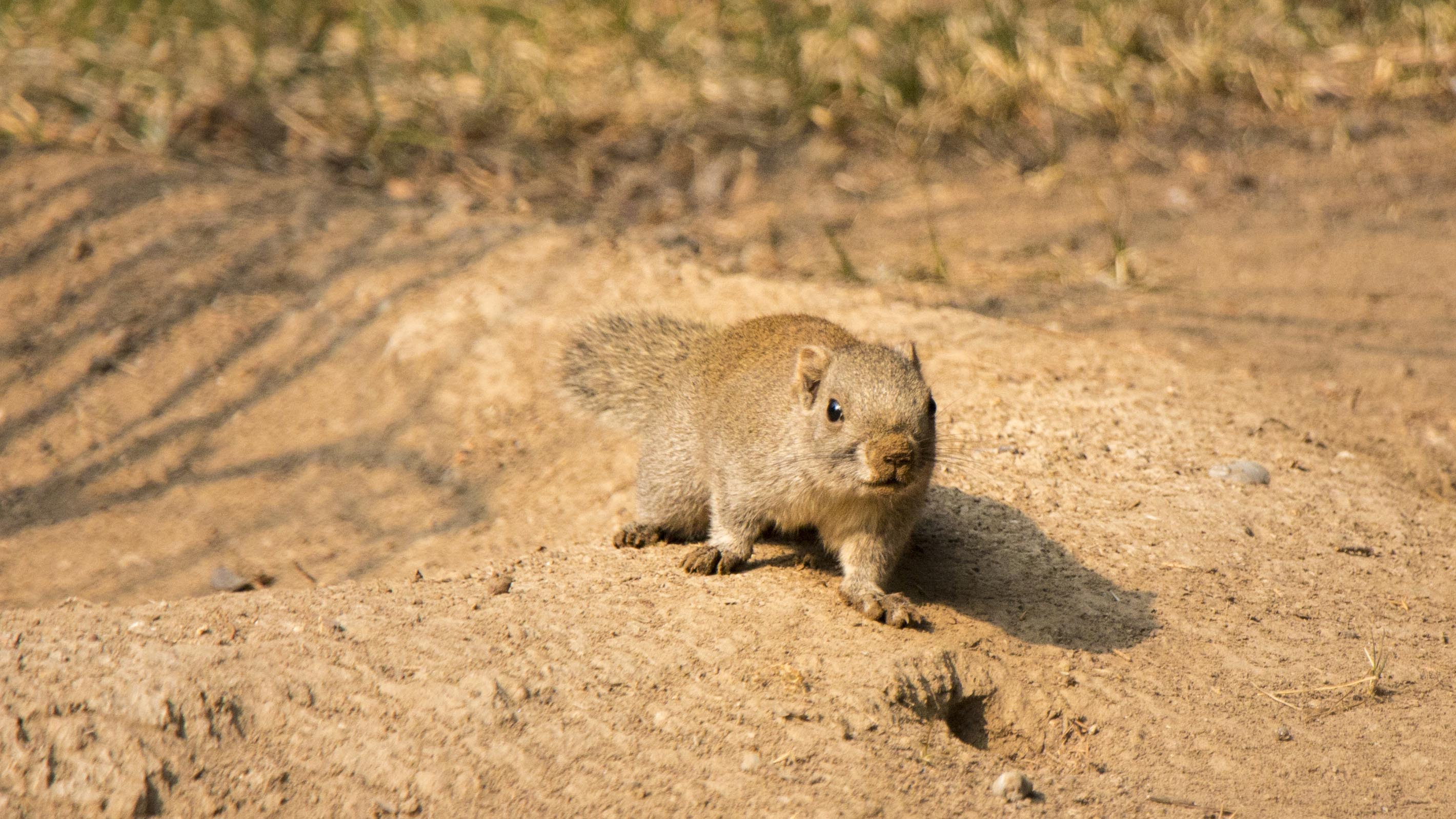
This one didn't run away immediately even though I got within a meter of it. February 11. Xing Fangyu/CGTN
This one didn't run away immediately even though I got within a meter of it. February 11. Xing Fangyu/CGTN

The squirrels had some areas all to themselves on February 11. Xing Fangyu/CGTN
The squirrels had some areas all to themselves on February 11. Xing Fangyu/CGTN
In the ancient idea of hierarchy, plants also have class differences. The coniferous trees are considered as a high-level tree to represent preciousness. In the royal temple, over 3,000 cypress trees from the original plantings have thrived for hundreds of years.
The old coniferous trees in the garden provide shelter for birds and squirrels.
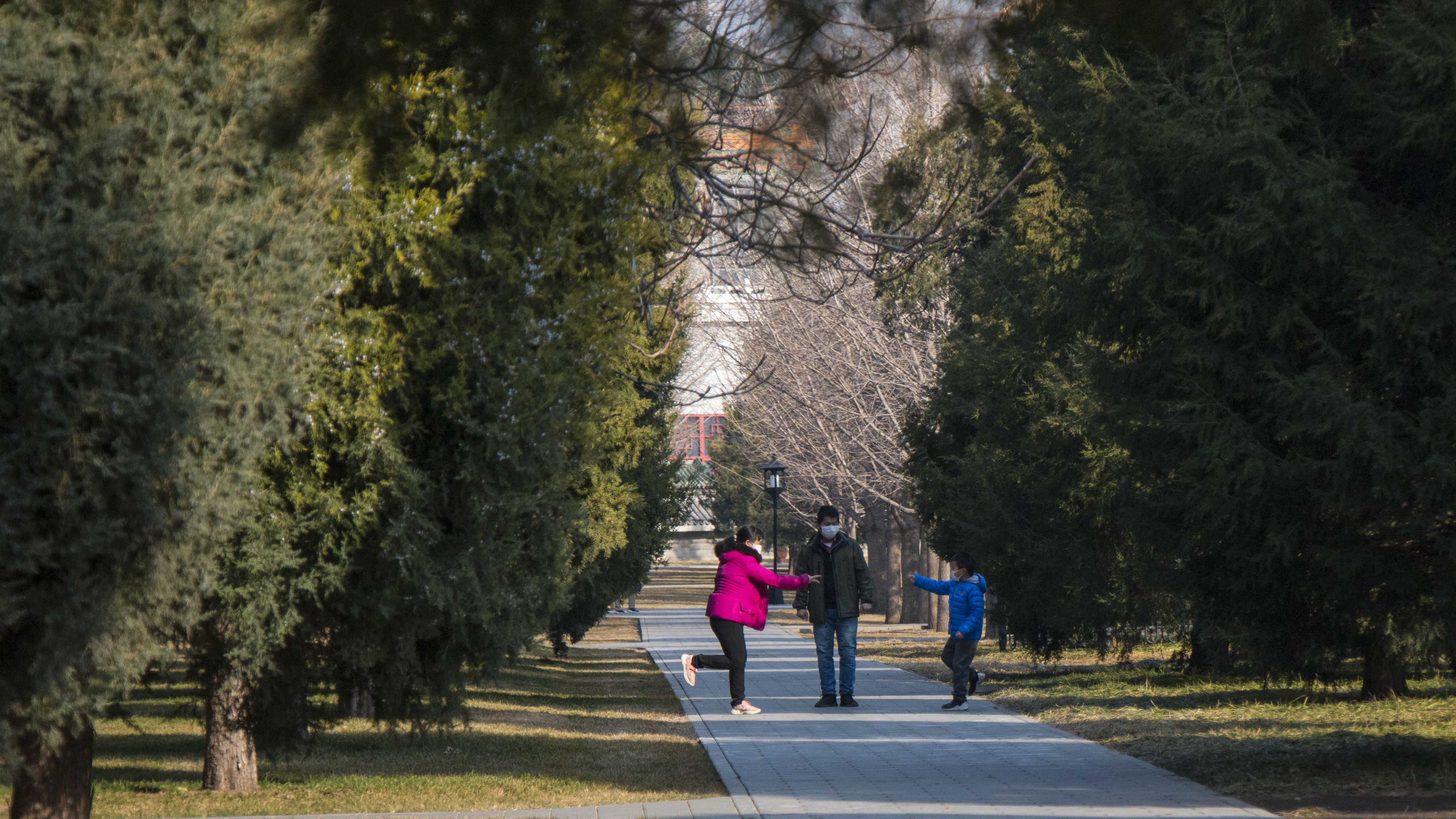
A family of three, wearing masks, take a stroll in the garden at the Temple of Heaven, February 23. Xing Fangyu/CGTN
A family of three, wearing masks, take a stroll in the garden at the Temple of Heaven, February 23. Xing Fangyu/CGTN

A squirrel climbs on a tree in the deeper woods on February 23. /Huang Yixi
A squirrel climbs on a tree in the deeper woods on February 23. /Huang Yixi
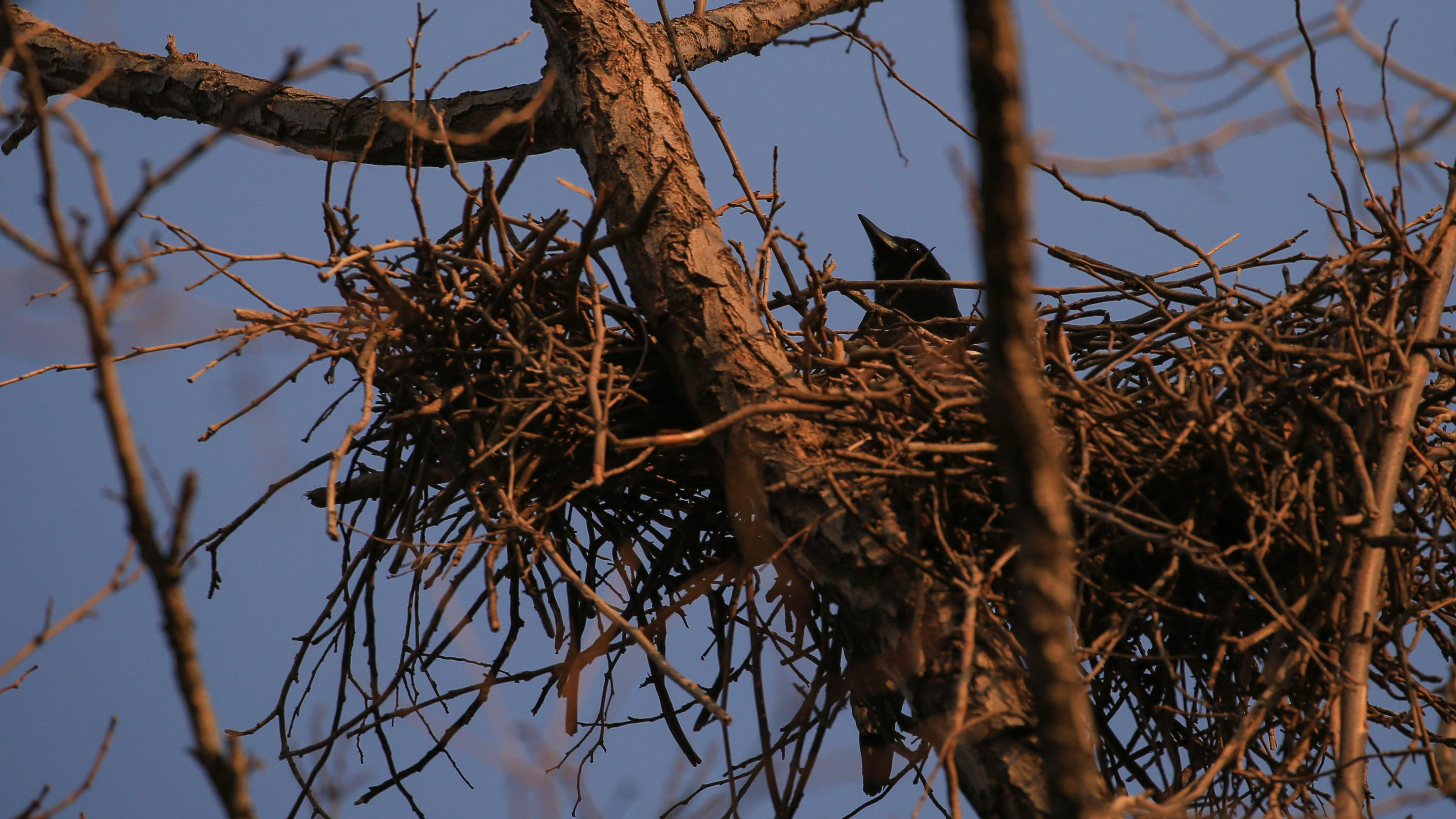
A crow sits in its nest at the Temple of Heaven, February 23. Xing Fangyu/CGTN
A crow sits in its nest at the Temple of Heaven, February 23. Xing Fangyu/CGTN
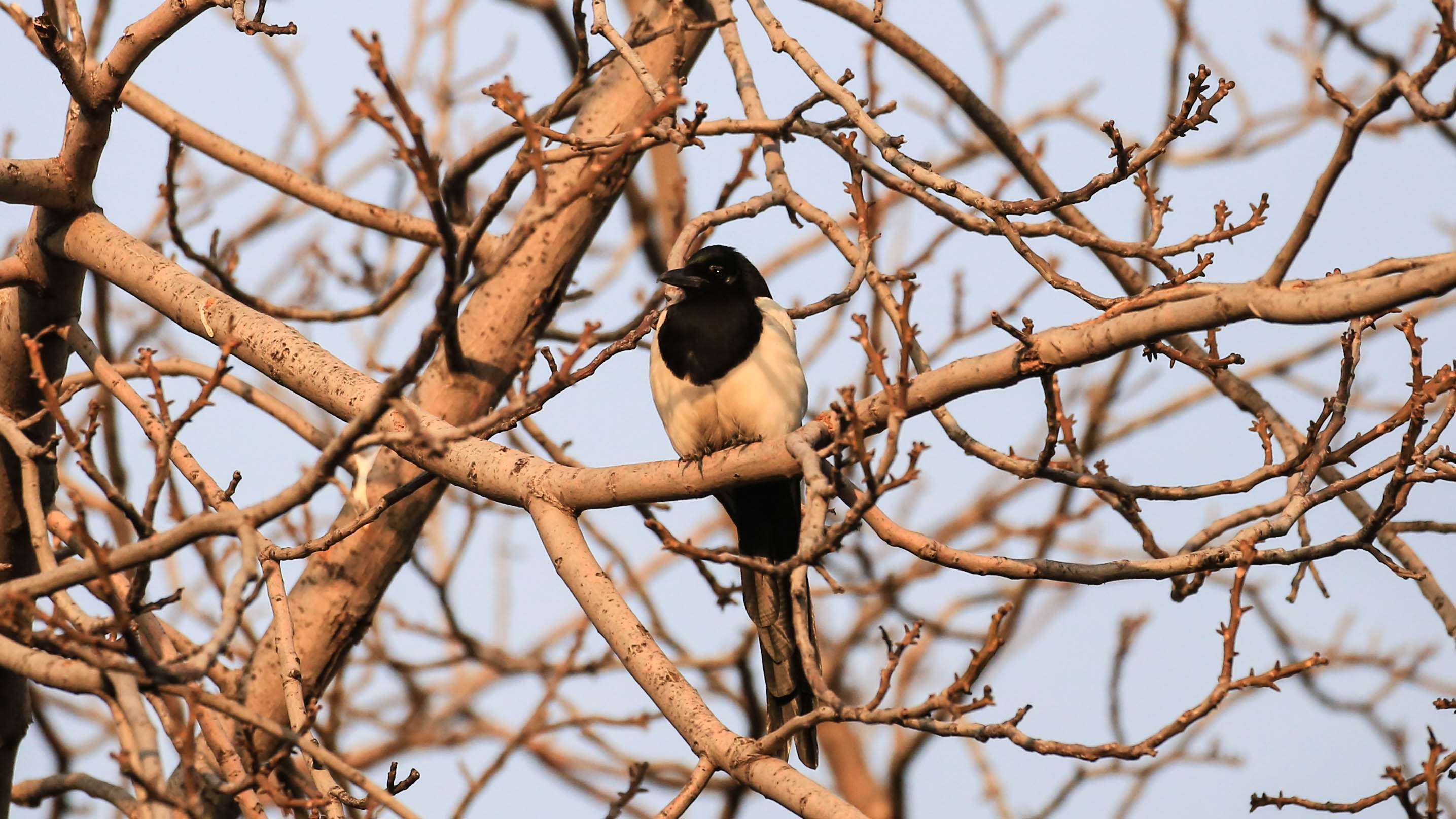
A common magpie at Temple of Heaven, February 23. Xing Fangyu/CGTN
A common magpie at Temple of Heaven, February 23. Xing Fangyu/CGTN
There were no newly confirmed patients with the coronavirus in Beijing on February 23 and most people had completed their quarantine. Urban parks and gardens welcomed more citizens, including the Temple of Heaven.
People danced and exercised in the garden while squirrels retreated to the shrubs and trees, but if you looked carefully, you could still find them jumping among branches. Music and human chat competed with birds chirping on the treetops.
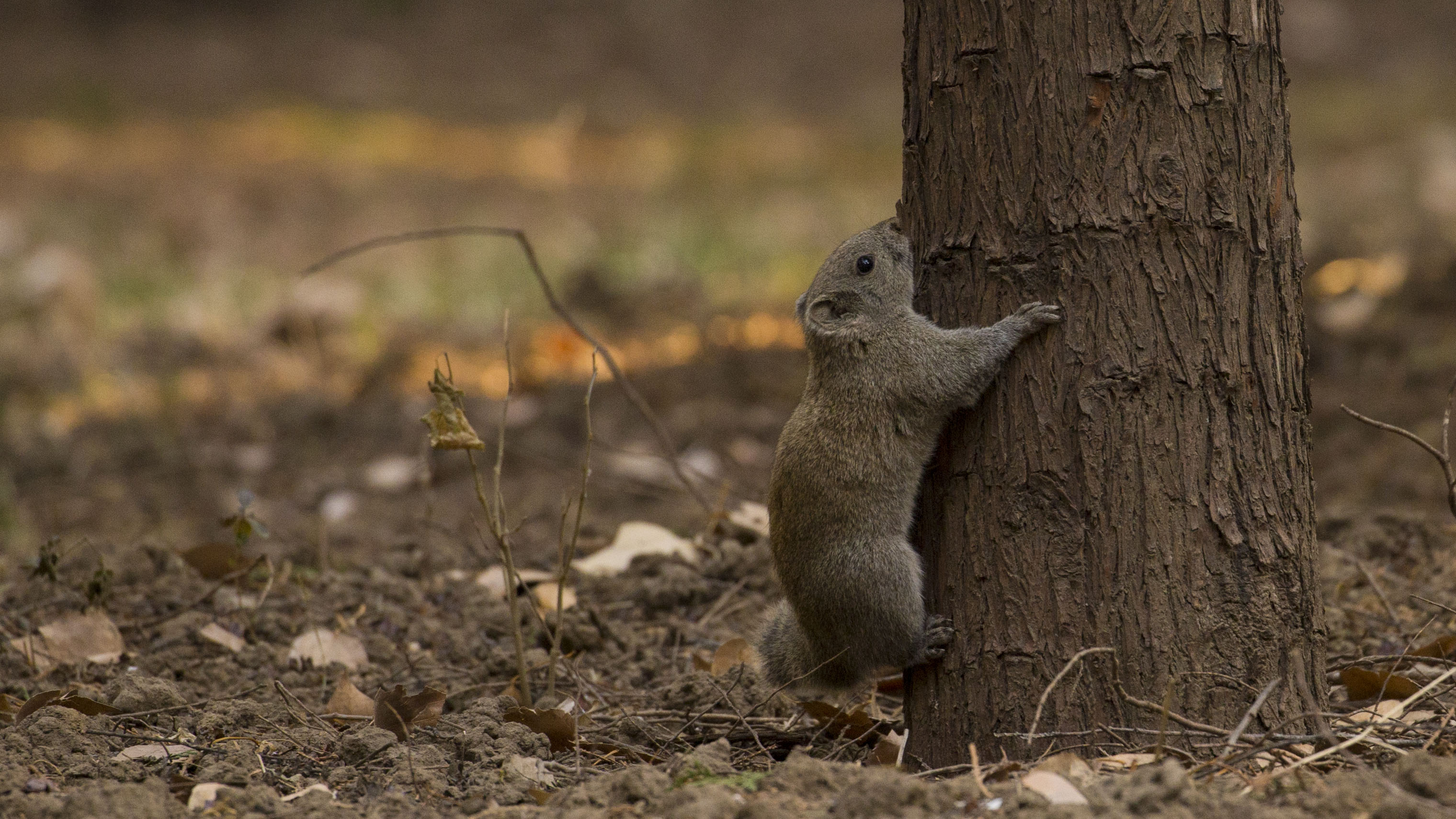
A squirrel searches for food at the Temple of Heaven in Beijing. /Huang Yixi
A squirrel searches for food at the Temple of Heaven in Beijing. /Huang Yixi
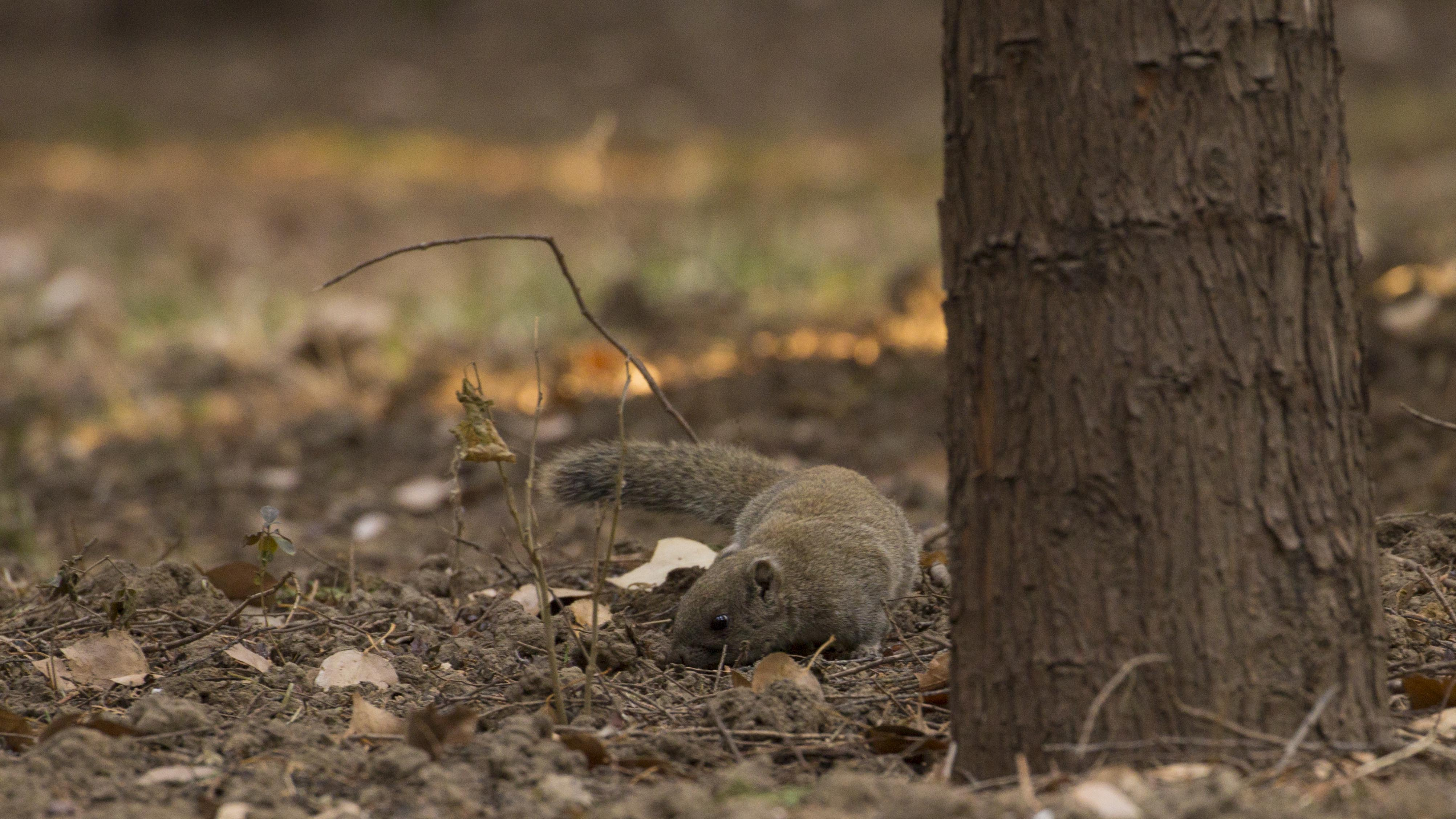
A squirrel searches for food at the Temple of Heaven in Beijing. /Huang Yixi
A squirrel searches for food at the Temple of Heaven in Beijing. /Huang Yixi
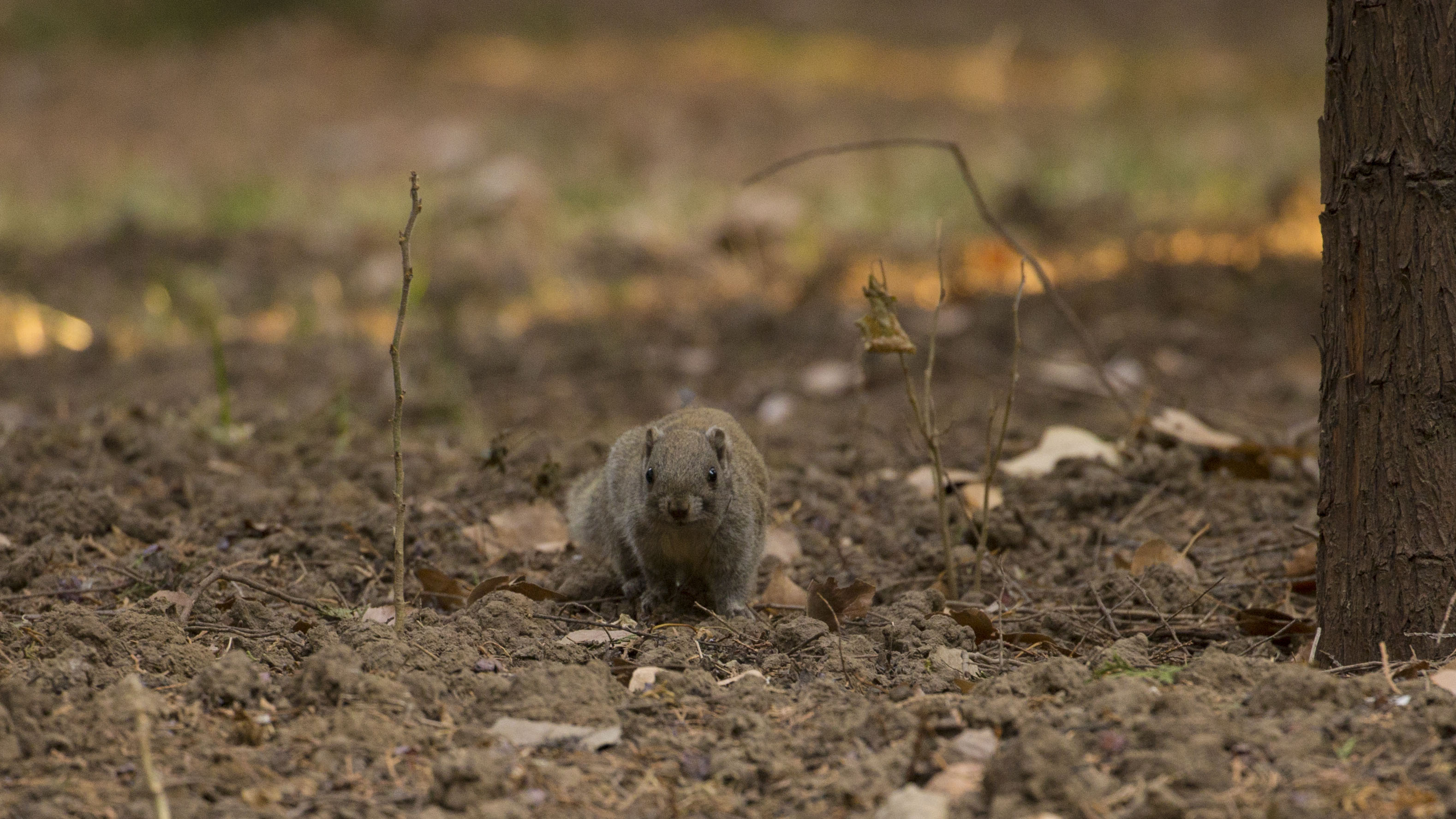
A squirrel searches for food at the Temple of Heaven in Beijing, capital of China. /Huang Yixi
A squirrel searches for food at the Temple of Heaven in Beijing, capital of China. /Huang Yixi
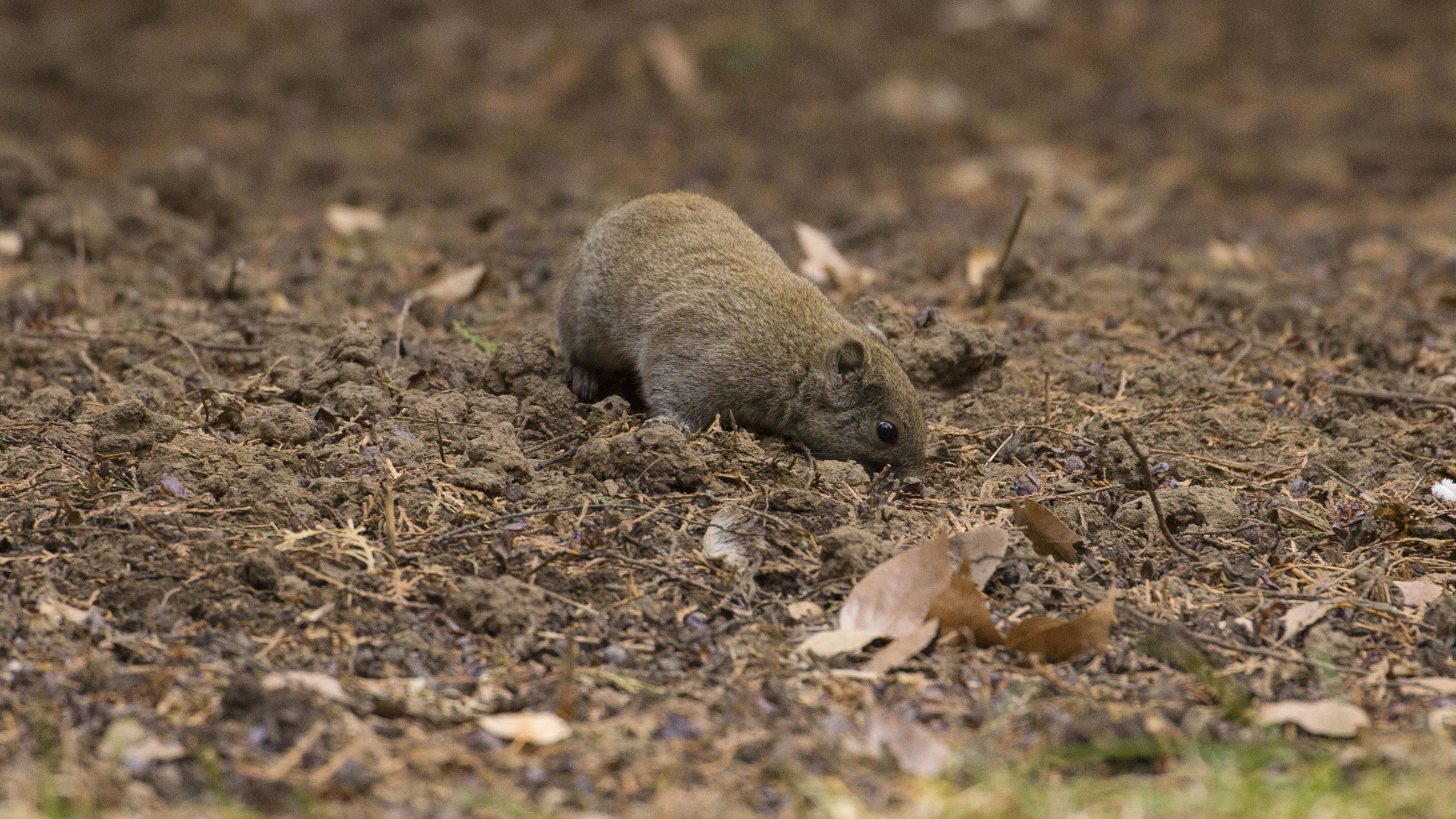
A squirrel searches for food at the Temple of Heaven in Beijing. /Huang Yixi
A squirrel searches for food at the Temple of Heaven in Beijing. /Huang Yixi
Urban eco-systems play a critical role in achieving public health and wellness. The coronavirus outbreak may teach us a lesson on how to cherish nature and build a shared future for all life on earth.
About 'City of Wild'
Nature exists not only in distant mountains and oceans, but also in cities and our daily lives. In the new series City of Wild, CGTN not only reveals a world of wildlife you may not have seen before but also shares a concept of this year's CBD COP 15 theme: "Ecological Civilization: Building a shared future for all life on earth."
(If you want to contribute and have specific expertise, please contact us at nature@cgtn.com)